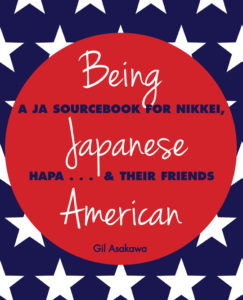Necessary cookies help make a website usable by enabling basic functions like page navigation and access to secure areas of the website. The website cannot function properly without these cookies.
We do not use cookies of this type.
Marketing cookies are used to track visitors across websites. The intention is to display ads that are relevant and engaging for the individual user and thereby more valuable for publishers and third party advertisers.
We do not use cookies of this type.
Analytics cookies help website owners to understand how visitors interact with websites by collecting and reporting information anonymously.
We do not use cookies of this type.
Preference cookies enable a website to remember information that changes the way the website behaves or looks, like your preferred language or the region that you are in.
We do not use cookies of this type.
Unclassified cookies are cookies that we are in the process of classifying, together with the providers of individual cookies.
We do not use cookies of this type.
 I met spoken word artist Kelly Zen-Yie Tsai when she performed in Denver during the 2008 Democratic National Convention (you remember, the cool one where Obama was nominated) for an APIA Votes gala for Asian Americans. She rocked the room with a too-short set, and I bought her first album of slam poetry from 2007, "Infinity Breaks," that night.
She released her second album, "Further She Wrote," in early December and it's available online via Bandcamp. Through January, you can name your price for the album (I suggest a minimum of $15 -- we gotta support our peeps), to download the tracks to your computer. The CD version will be available in January.
Tsai's a Chinese Taiwanese American born and raised in Chicago and now living in New York City. New York is a palpable presence in some of her poems, especially her sharply observed ode to her neighborhood, "he Ballad of a Maybe Gentrifier" in which she bemoans how the Bedford-Stuyvesant neighborhood is changing as new diverse residents move in and the established black population gets pushed father into the margins. She notes the irony that she's part of the new guard that's changing the tenor of the Bedford-Stuyvesant area of Brooklyn. I know the hood, since it's where I went to college in the '70s, at Pratt Institute. It was a mean-ass place then and it's way different now. Sometimes changes -- even "gentrification" is a good thing. She also draws a terrific picture of her hood in "Betp, Bed-Stuy Sketch #1."
I met spoken word artist Kelly Zen-Yie Tsai when she performed in Denver during the 2008 Democratic National Convention (you remember, the cool one where Obama was nominated) for an APIA Votes gala for Asian Americans. She rocked the room with a too-short set, and I bought her first album of slam poetry from 2007, "Infinity Breaks," that night.
She released her second album, "Further She Wrote," in early December and it's available online via Bandcamp. Through January, you can name your price for the album (I suggest a minimum of $15 -- we gotta support our peeps), to download the tracks to your computer. The CD version will be available in January.
Tsai's a Chinese Taiwanese American born and raised in Chicago and now living in New York City. New York is a palpable presence in some of her poems, especially her sharply observed ode to her neighborhood, "he Ballad of a Maybe Gentrifier" in which she bemoans how the Bedford-Stuyvesant neighborhood is changing as new diverse residents move in and the established black population gets pushed father into the margins. She notes the irony that she's part of the new guard that's changing the tenor of the Bedford-Stuyvesant area of Brooklyn. I know the hood, since it's where I went to college in the '70s, at Pratt Institute. It was a mean-ass place then and it's way different now. Sometimes changes -- even "gentrification" is a good thing. She also draws a terrific picture of her hood in "Betp, Bed-Stuy Sketch #1."




 Holy cow -- I just read about this on
Holy cow -- I just read about this on 
 JACL sent out an announcement this morning about an agreement that's been reached between NBC Universal, Comcast (which is trying to get regulators' blessings to buy NBCU) and a handful of Asian American Pacific Islander organizations: the
JACL sent out an announcement this morning about an agreement that's been reached between NBC Universal, Comcast (which is trying to get regulators' blessings to buy NBCU) and a handful of Asian American Pacific Islander organizations: the
